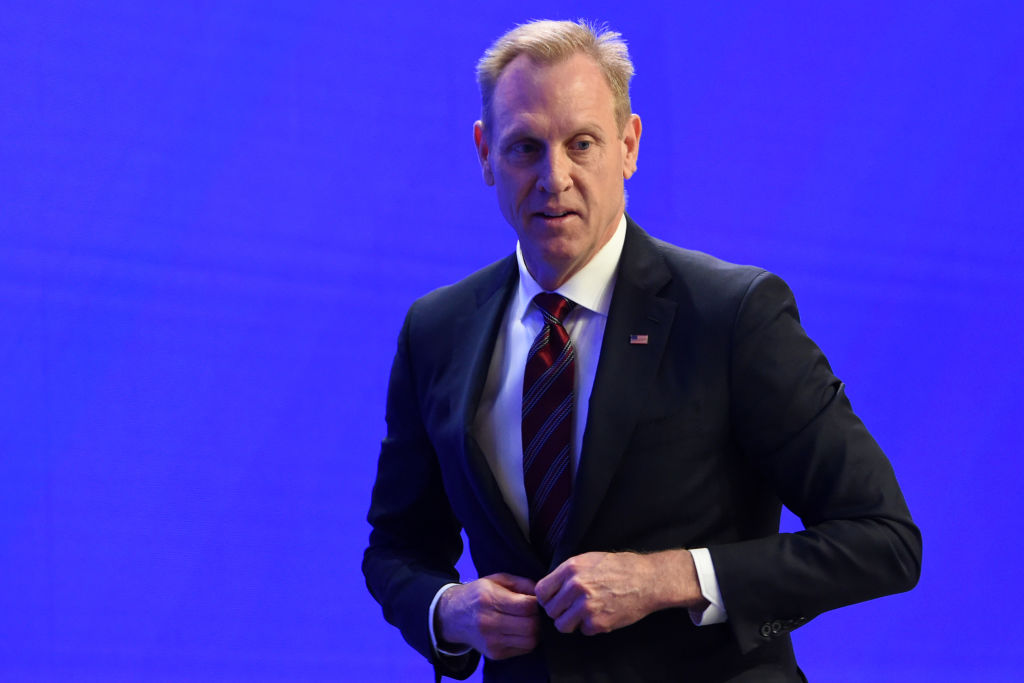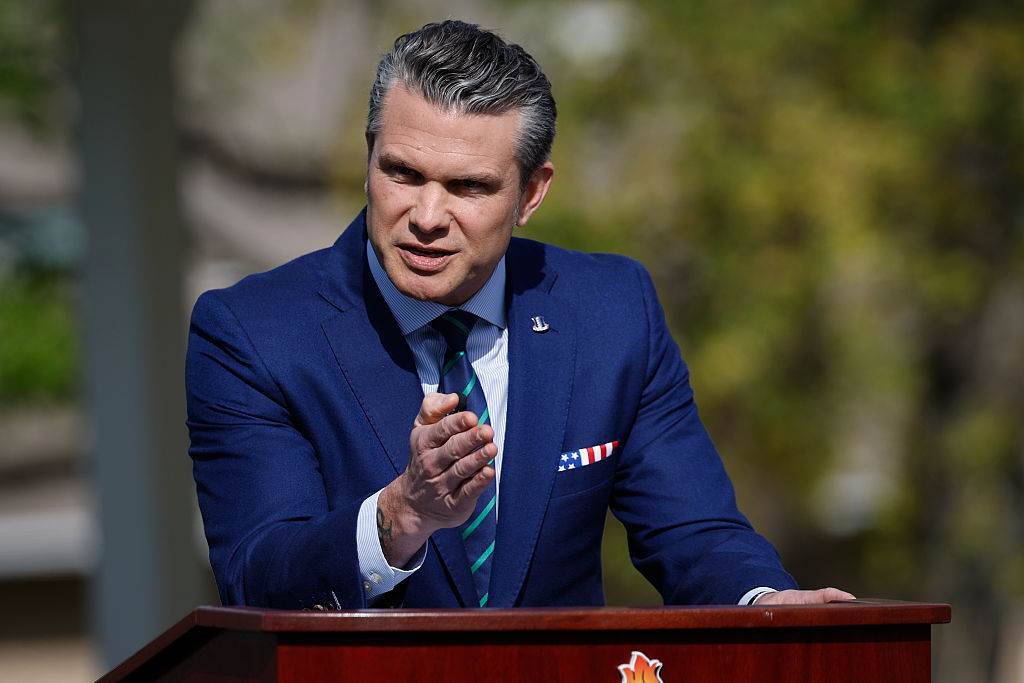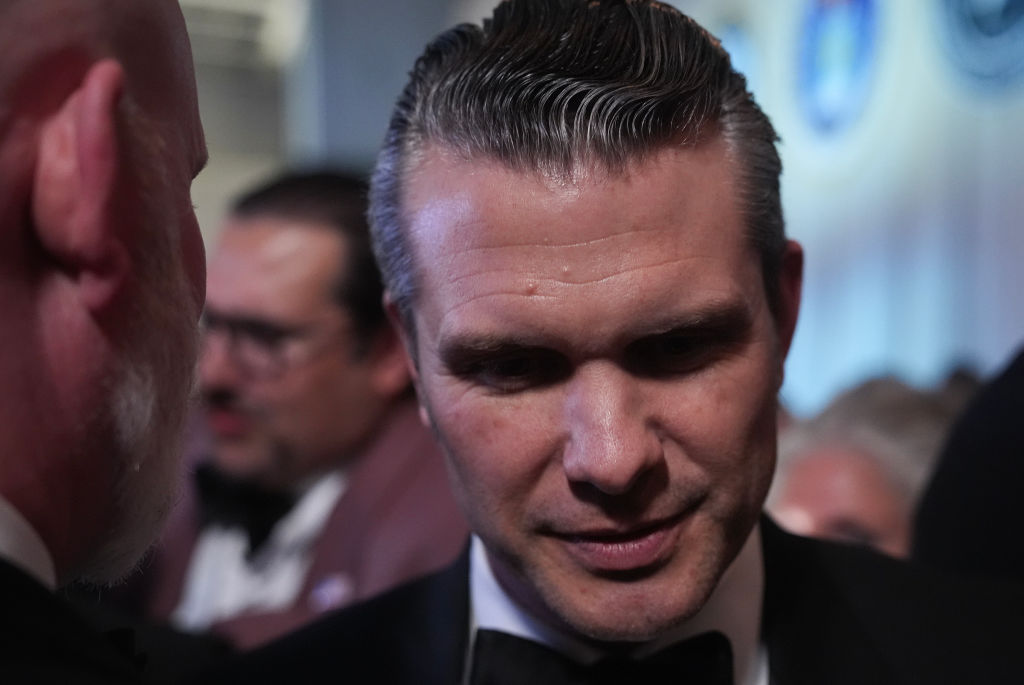Donald Trump dispensed with the services of his acting Defense chief Patrick Shanahan on Tuesday, amid scathing media coverage and ongoing tensions with Iran.
Shanahan had filled the post on an interim basis since the sudden protest resignation of James Mattis in December. Trump had demurred for months on formally giving Shanahan the job, drawing out the interregnum long enough to raise questions of legality. Trump formally endorsed Shanahan in the spring, but soon after began second-guessing his own choice, reportedly asking several people on his June junket to Europe what they thought of his new Defense pick.
Shortly afterwards, a scathing profile of Acting Secretary Shanahan in Politico portrayed him as a useful idiot, a pawn of John Bolton, Trump’s wily national security adviser. On Tuesday, the Washington Post responded to Trump’s announcement by publishing extended accounts of Shanahan’s personal problems, including sordid details of domestic violence between his son and ex-wife in which Shanahan had intervened. The Post claims to have been working on the Shanahan story since January.
‘He should have alerted POTUS to this,’ a former Defense official close to the Trump administration told me Tuesday.
Shanahan’s ties to the defense industry were a further liability. Veteran national security watchers saw the appointment of Shanahan, a former executive at defense contracting powerhouse Boeing, to the top job at the Pentagon as extraordinary, a crossing of the Rubicon in standards of government. But in Trumpified Washington, with a digitized news cycle enhancing conflict-of-interest scandals galore, Shanahan’s story barely registered outside of the policy community.
Still, red flags were raised prior to Tuesday’s announcement. Websites friendly to Trump tore into Shanahan’s dealings with tech giant Amazon. Shanahan’s predecessor Jim Mattis may have instigated the $10 billion contract in question, but Shanahan took the heat for it — and the fall for it as American conservatives and libertarians become increasingly hostile to tech conglomerates.
President Trump has already proven the risks in hiring personnel for personality over policy. He warred with his first attorney general, Jeff Sessions, despite Sessions having been an ideological proto-Trump for years, and having been the president’s first supporter in the Senate. Trump hired his first Secretary of State, Rex Tillerson, after interviewing him once, impressed with Tillerson’s ‘central casting’ visage and Exxon pedigree. Trump’s method has produced a dizzying number of flops, and an administration turnover unprecedented in the modern era.
True to form, Trump has tapped Mark Esper, the Army secretary, as Shanahan’s interim replacement. Again, Trump intends another trial run. Unchastened by the Shanahan fiasco, Trump has been persuaded by Esper’s Ivy League background, his television-ready profile, and a whiff of personal chemistry — despite Esper’s significant ties to the business of war.
Esper previously served as vice-president for government affairs at Raytheon, another defense contractor. ‘From Boeing to Raytheon,’ Paul Staniland of the University of Chicago rued. Esper’s ties are likely to draw the attention of leading Democratic presidential candidates, especially Bernie Sanders and a surging Elizabeth Warren, both critics of the military-industrial status quo.
One of Shanahan’s final acts in his temporary office was to announce the dispatch of 1,000 more American troops to the Gulf of Oman, even as Trump emitted counter-signals by labeling last week’s attack on oil nukes in the Gulf a ‘minor’ problem. There is scant evidence that the administration’s strategy of ‘maximum pressure’ on Iran is working. ‘It is leading to more undesirable activity from Iran, not less,’ Benjamin H. Friedman of Defense Priorities said. With Trump about to attend a G20 summit in Japan and a spiraling situation with Iran, Acting Secretary Esper has his work cut out for him.

























